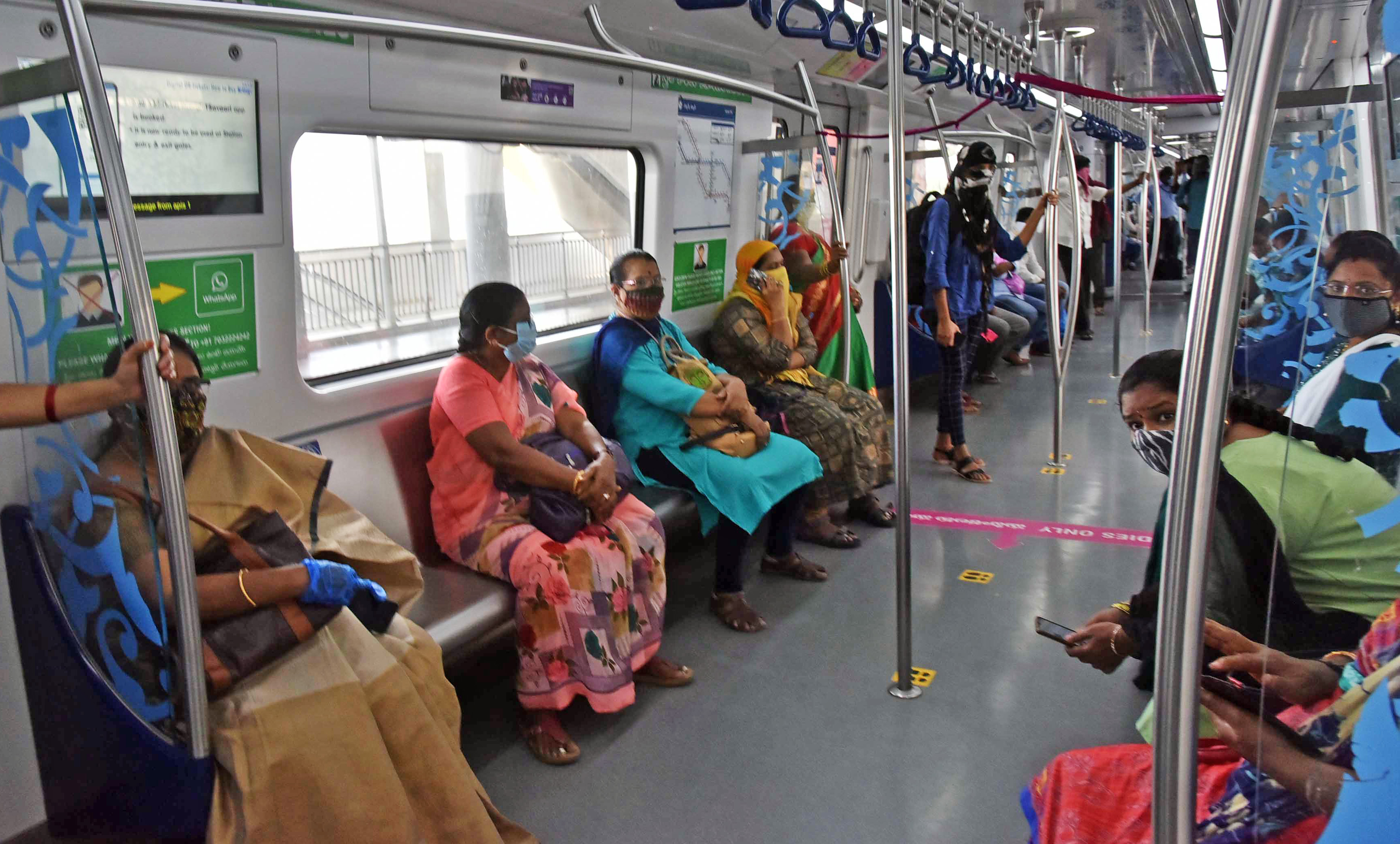The Centre has taken enough care to ensure that metro services don’t spread the virus in any manner.
The Unlock 4.0 guidelines announced by the Centre that prompted reopening of metro rail services have not just proved to be beneficial to the common man gripped by the Covid-19 crisis induced economic woes, but also brought forth the resilience of both public and private institutions in meeting the challenge gradually. The Government of India has taken these unlock initiatives after weighing in all aspects of the situation.
The resumption from 7 September of metro services that put the country on the world map of modern public transport system, in many cities has been flawless yet cautious. The Centre has taken a calibrated decision to resume metro services which were shut since 24 March and prepared their managements which work under supervision of the states to meet the needs of the ordinary public.
The preparedness of the metros has been satisfactory while the response of the public has been commendable. Hyderabad Metro Rail Limited (HMRL), a venture of public-private partnership, has opened all three routes from 9 September, serving a distance of around 70 km. If it received around 19,000 passengers on the first day of the first route, the figures went up to 60,000 by the third day.
This is around 55% of the pre-Covid traffic of HMRL which serves the city from 7 am to midnight. However, now the metro operates only four hours in the morning and another four in the evening, thus confining its services to the working population. The authorities are closely monitoring the health and hygiene of the commuters through random surveys, to assess the impact of the metro on the Covid spread.
At the same time, the Centre has taken enough care to see that the metro services don’t spread the virus in any manner. All the metro coaches and stations are thoroughly sanitized and the staff provided with PPE kits, and passengers are thermal-screened at the entrances and compelled to wear face masks and maintain physical distance.
Interestingly, around 90% commuters have opted for cashless payments. A spokesman of the HMRL said that the successful reopening of metro services would stand as an example of India’s top class Covid response on public transport. The same is the case with metros of other cities–Namma Metro of Bangalore (84km) and Chennai Metro (46km) and Kochi Metro (25km) in Kerala.
The authorities have heaved a sigh of relief over the fact that the public hasn’t rushed in big numbers to metro stations. The response of the public has been cautious and careful in following guidelines of the authorities. An official of Bangalore metro said that not a single discrepancy was noticed anywhere in the first three days of operations.
That augurs well for the gradual opening up of other services like airlines, railways and RTC buses in different states. The same safety standards can be emulated by these authorities as well and we are sure people will cooperate in equal measure. These public transport services cannot be shut forever, though the virus spread continues to be alarming at many places. A tough balancing act is indeed.
Unlock 4.0 also proved to be working well with some other measures to normalise public life. For example, the conduct of JEE (joint entrance examination) (Mains) for 2020 from 1 to 6 September has helped restore the academic atmosphere in the country. All arrangements are in place for JEE (Advanced) on 27 September, so that admissions can be processed for 23 IITs for the current academic year. Despite doubts expressed by some states over the safety and security of students, the turnover in the JEE Mains at 74% is around that of the last year. Inspired by this, all southern states have begun their own common entrance tests for medical and engineering courses. Telangana’s EAMCET-2020 (engineering, agriculture and medical common entrance test) will be held from 7 to14 September. All the universities were told to conduct examinations for the final semesters and they will be held by the end of September or beginning of October. The University Grants Commission, too, guided by Unlock 4.0, directed the varsities to stick to the schedule of examinations, thus allaying fears of promoting all students, which would have eroded credibility of their degrees. Unlock 4.0 guidelines have also encouraged states to frame conditions for resumption of shooting of films and TV serials and opening up of conference halls with some restrictions. Film industries of Telugu–Tollywood (inspired nickname), Tamil–Kollywood, Kannada–Sandalwood and Malayalam—Mollywood—have commenced their shooting schedules.
This will help the two key service sectors—entertainment and tourism—ahead of the crucial festival-cum-winter season. The Covid-19 situation in the country may be still alarming while all measures are being taken to tackle it on the medical front. But, the careful manner in which the unlock guidelines have been framed by the Centre will definitely underline the strengths of our systems.

